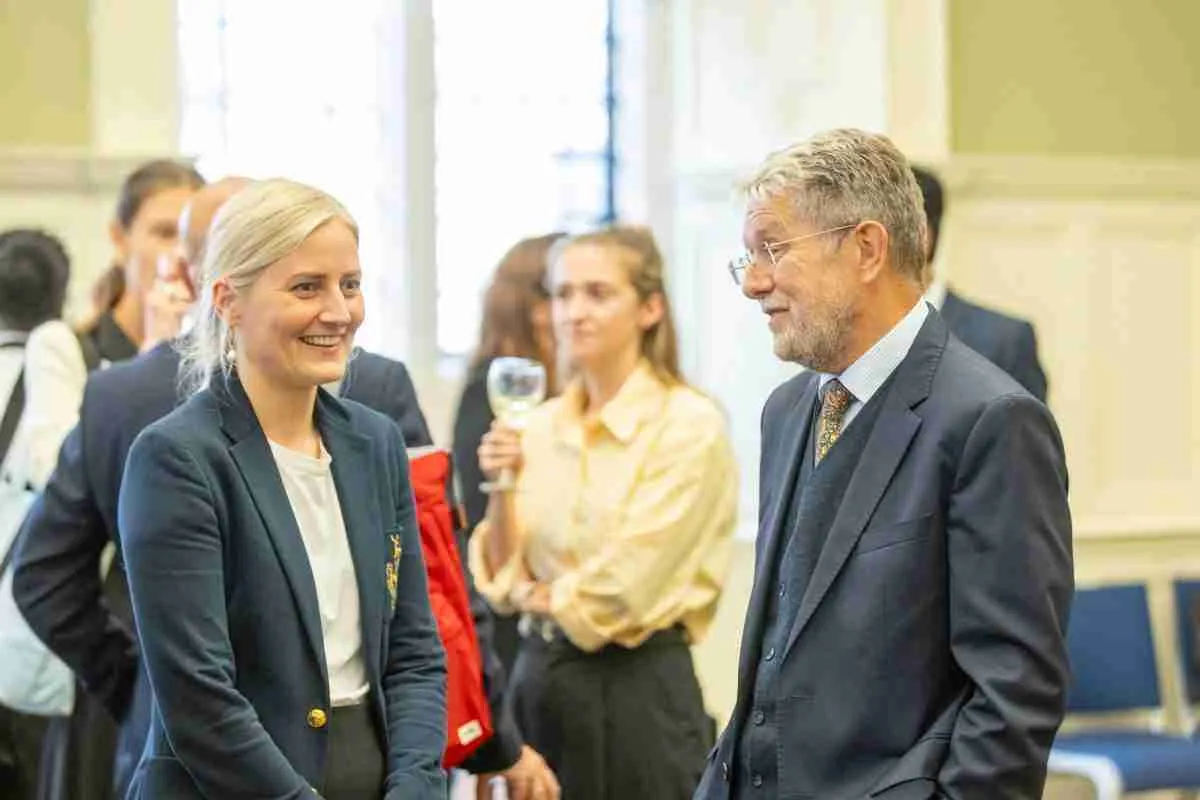Press and Blog
India Week discusses closer UK-India education collaborations

OXFORD, 3 July: More than 100 delegates from the UK and India gathered during the first conference of India Week 2024, at the University of Oxford, to discuss the future of the bilateral relationship in education.
The conference started with Jonathan Black, Director of the Careers Service at Oxford University since 2008 giving introductory remarks, with a focus on Oxford’s relationship with India, the importance of Indian students to the university and how the university ensures high graduate outcomes for its students.
Sudhakar Rao, Head of Brand at the ICFAI Group moderated the next session on the internationalisation of India’s higher education, with Mike Winter OBE (Director International Affairs, University of London), Harris Beider (PVC for Engagement, Enterprise and Innovation, Birmingham City University) and Amrita Sadarangani (Senior Director – Global Research Alliances, Ashoka University).
Internationalisation of higher education as noted in India’s National Education Policy 2020 encourages two-way and equitable student mobility, with a focus on ‘internationalisation at home.’ This means greater diversity on campus and global quality standards. Delivering opportunities for outbound mobility particularly for credit transfers and research is also a priority in the NEP 2020. But it must be realistic and pragmatic.
The latest data shows that UK in-country provision in India reaches just over 12,000 students – compared with 10x that number who travel from India to the UK for their degrees. Many Indians cannot travel to the UK for family, work or financial reasons. International branch campuses in GIFT City and joint, dual and twinning arrangements underpinned by new regulations from India’s University Grants Commission (UGC) and fuelled by the NEP 2020 are much easier conversations today than they used to be. Yet, UK universities are risk averse.
But there are more ways to partner with India than just student recruitment and campuses. For example, the session touched on University of Edinburgh partnering with the Department of Science & Technology in the Gujarat state government to establish India’s first dedicated biotechnology university – Gujarat Biotechnology University in 2022, which Amrita spearheaded.
In the next session, Ali Aliev (Director of Business Development, North London Collegiate School) spoke about India’s appetite for consuming high-quality school education. As the Indian economy grows, British private school Harrow International School opened a campus in Bangalore with Amity, better known for its higher education. Shrewsbury School is establishing a campus with Jagran Social Welfare Society in Bhopal on a 150-acre site, and Whitgift School is opening a school in Hyderabad with the operator of Suchitra Academy. Ali spoke about how NLCS sees the India market and where the opportunity for future UK-India collaboration exists for quality British education. NLCS has already expanded globally, with campuses in Jeju island (South Korea), Dubai, Singapore and Vietnam, with other international projects also in the pipeline. It is one of the highest-ranked IB schools in the UK.
Aisling Conboy (Senior Programme Director, Wilton Park) discussed with Ripon Bhowmik (Director of Global Partnerships, GEDU Global Education), Dr. Avantika Tomar (Partner, EY Parthenon) and Tara Panjwani (Head of Higher Education, UKIBC) about how UK institutions better participate in the creative and sustainable internationalisation of India’s growing education and research landscape. They explored how the last five years have seen India’s education sector undergo a remarkable transformation. India has now become the most important market for UK university international recruitment. Notably, before the UGC’s May 2022 regulations that allowed twinning, joint, and dual degree programs, UK Transnational Education (TNE) in India was limited to a light-touch approach.
With these reforms, the landscape is changing. Many UK universities are eager to broaden their existing partnerships and transition to mid-scale TNE, while some are also considering the large-scale foreign campus route. Despite the growing interest and appetite for TNE in India, it remains at a very nascent stage. The discussion focused on the quality framework, understanding the current TNE landscape, and drawing on best practices to form successful TNE partnerships.
The quality of India’s graduates, especially in engineering has long been under scrutiny, for their lack of employability. GUVI’s Founder and CEO Arun Prakash spoke about the company’s foray outside India and why it has had success in skilling requirements in India, through its model of providing tech skill development courses in vernacular languages. This was GUVI’s first visit to the UK to explore the potential for expanding into new university and corporate partnerships.
The evening drinks reception featured a Keynote Address from Shaunaka Rishi Das (Director, Oxford Centre for Hindu Studies). The OCHS is the global leader in Hindu Studies. They are committed to the academic study of Hindu cultures and traditions in all periods and parts of the world. Their mission is to contribute to a more holistic global discourse and educate students to become first-class scholars and future leaders in fields including education, philosophy, religion, ecology, literature, and politics. Shaunaka talked about the growth of the Centre and how it is now taking its education to India, with significant interest from Indian partners.
The event was supported by our partners WBR Corp, Oxford Centre for Hindu Studies, UK-India Business Council and GUVI. India Week 2024 is the place to engage in high level discussions on the New India, and closer bilateral ties between the countries.